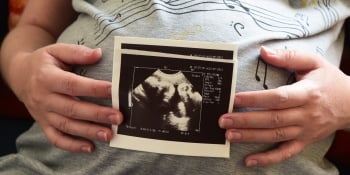Published: 19.08.2020

The European Court of Human Rights allowed a Nigerian woman living in Spain to keep in touch with her son. The woman had fought for the right to visit her child regularly and for the suspension of his adoption for a few years. At that time, the Nigerian obtained approval to stay in Spain and found a job. The Court recognised the complaint filed by the woman due to the violation of her right to respect for family life.
At the end of 2008, the Nigerian bore a son. The mother struggled with a difficult personal situation – when her son was two months’ old, she put him in a shelter for orphans, stressing that she still wanted to keep in touch with him. After a couple of months, the Spanish Directorate for Family suspended the woman’s right to regular visits. In spite of the mother’s explicit objection, the institution also started an adoption procedure.
The woman spent the next five years in courtrooms, appealing to further instances, with a request for the restoration of her right to visit her child and the suspension of the adoption procedure. In the course of the proceedings, the Nigerian showed the will to stabilise her life: she fulfilled the requirements for a temporary permission to stay in Spain, she took part in a Spanish social integration programme, and she found a job. In 2014, the court temporarily suspended the adoption of the child, but a year later it changed its position and allowed the boy to be adopted by a new family, despite the mother’s objection.
In 2016, the woman filed a complaint to the European Court of Human Rights in Strasbourg, claiming the violation of her right to respect for family life guaranteed in Article 8 of the European Convention on Human Rights. The Court recognised the Nigerian woman’s complaint. The ECHR stressed that separating a child from its biological mother and giving it up for adoption should be treated as a last resort, when the implementation of less radical measures is not possible. However, the Spanish authorities isolated the child from its mother already after three months and did not make any real attempts to renew the relationship between them for the next few years.
“This sentence is good news for all families treated unjustly by social welfare officers. The Court once again reminds us that the child’s bond with its biological parents is an undeniable and objective value. Social welfare offices often ignore this value and, as such, prefer solving family problems by transferring a child from its natural family to an adoptive family. This should be done only as a last resort, as the Court rightly stated. Every parent has the right to a second chance, and the state should make an attempt to help improve family relations before deciding to break them off completely,” emphasised Karolina Pawłowska, Director of the Centre of International Law of the Ordo Iuris Institute.
Case of Omorefe v. Spain, ECHR’s decision of 23 June 2020

· Abortion advocates manipulate human rights slogans which remain relevant to Polish citizens in order to force the public into supporting abortion.

09.02.2024
- The first reading of the civic bill "Yes to family, no to gender" is underway in the Sejm.
- This bill concerns consent to the denunciation of the Istanbul Convention and the creation of a Team for the development of the principles of the International Convention on the Rights of the Family

01.02.2024
- In December 2023, the European Parliament voted in favour of the European Commission's proposal to regulate the mutual recognition of parenthood in EU Member States.
- As a result of the adoption of this draft legislation, Poland would be obliged to recognise the legal validity of a document certifying same-sex parenthood.

30.01.2024
- The Senate of the Czech Republic has rejected a draft resolution to consent to the ratification of the Istanbul Convention, which questions the existence of two genders by introducing the concept of "socio-cultural gender" into the legal order - gender.
- The Czech portal 'Seznam Zprávy' revealed that, before the final decision was made, the senators read an analysis by the Ordo Iuris Institute, which in 2020 was translated into 17 languages, including the Czech language.